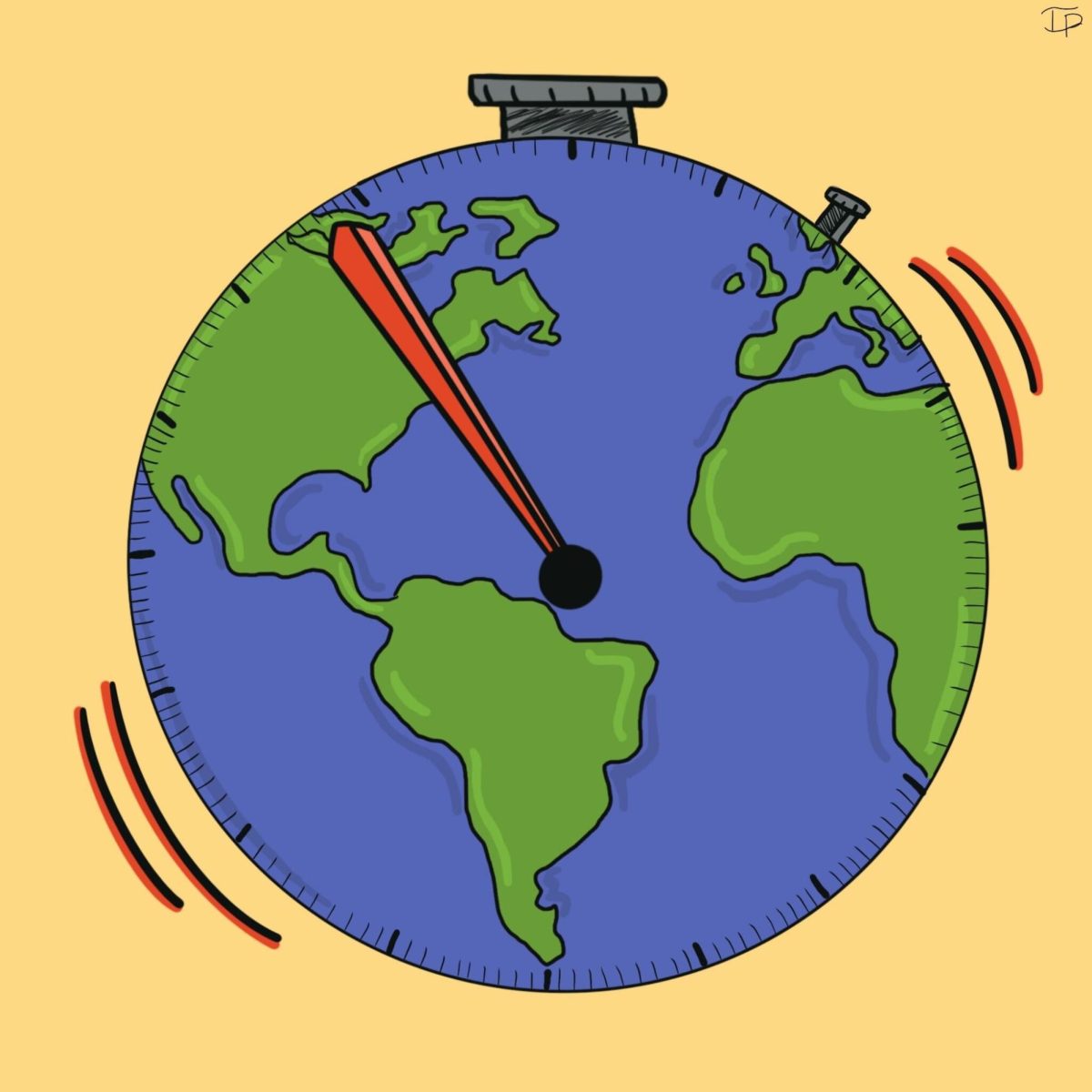Jacobs: Five-star reviews don’t make albums instant classics
February 25, 2009
What makes a classic record classic? According to Rolling Stone Magazine, the answer is a… What makes a classic record classic? According to Rolling Stone Magazine, the answer is a five-star rating. And going with that reasoning, two brand new albums have already achieved such status ‘mdash; U2’s No Line on the Horizon and Bruce Springsteen’s Working on a Dream. Are both records good? Sure. Good. Springsteen’s Dream is certainly his most accomplished record in a handful of years ‘mdash; better than Magic, less adventurous than his Pete Seeger throwback We Shall Overcome ‘mdash; but it doesn’t rank with the records most would consider classics of the Boss. Mainly you’ve got the big three ‘mdash; The River, Darkness on the Edge of Town and a little record called Born to Run. On the U2 front, many critics have called No Line on the Horizon the band’s best effort since the blockbuster-via-artistic-freakout Achtung Baby. But when you consider U2’s output between the two albums, the fact that this is the band’s best album in almost two decades doesn’t seem so drastic. 1997’s Pop? Almost laughable. All That You Can’t Leave Behind from 2000? Would’ve been considered an artistic highlight for, say, Matchbox Twenty, but as a U2 record, it didn’t impress me. So it’s safe to say that both the new Springsteen and U2 albums are certainly returns to form for the artists. But classics? Rolling Stone’s rating system ranks albums as thus: one star is poor, ascending to four stars (excellent) and five stars (classic). That last word is printed in every issue of the magazine in the ranking descriptions, but very rarely seen actually assigned to an album. And that’s as it should be ‘mdash; any publication taking a critical approach to art should really think through its ratings so that to earn the highest score, said art has to be truly worth it. But herein lies the problem of Rolling Stone’s stars ‘mdash; by calling five stars ‘classic,’ the magazine sets itself up for trouble. The commonly understood notion of a classic record would be one that has earned the classification through both quality and impact. In other words, Bob Dylan’s Blonde on Blonde is a classic record because it is truly amazing, but also because of its great impact on the entirety of popular music ‘mdash; the record is a milestone of rock ‘n’ roll. Applying that logic to Bruce and Bono, we’ve got a serious problem. Let’s ignore the question of either new record being actually great ‘mdash; that’s a reviewer’s job, and for the sake of this column, a reviewer I am not ‘mdash; and look at the implication of a classic. It is simply impossible to comprehend the impact of either record because it hasn’t happened yet. They’re just too new. Hell, U2’s Horizon has only been released on MySpace. The physical record won’t even hit the shelves until March 2. Rolling Stone’s David Fricke, who, don’t get me wrong, is one of the best rock critics since Lester Bangs, dropped the review on Feb. 20 ‘mdash; almost two weeks before the world even had a chance to hear this supposed classic. And this leads to the most important point ‘mdash; classics are decided by the fans (of music, not of a certain band), not critics. That is not to say that all classic records are huge sellers, though. Television sold a paltry number of its masterwork Marquee Moon, but the album’s huge impact on the burgeoning punk scene and its cache of devoted fans pushed it to classic status. Had only critics championed it, it would’ve been forgotten. But for fans to attach themselves to a record or for that record’s impact on music to be even remotely calculated, one thing is crucial ‘mdash; time. Marquee Moon wasn’t a classic when it came out in 1977, it was just a really great record. And that’s what Horizon and Working on a Dream are. Really great records. But not classics. Not yet ‘mdash; and if you ask me, neither ever will be. The days of classic U2 and Springsteen both ended a long, long time ago, though this doesn’t negate that either still writes good, if not great, music. Well, not U2. U2 stopped being even remotely awesome around 1992. But I digress. Rolling Stone used to be criticized for bashing records that eventually became undeniable classics (ever heard of Led Zeppelin?). But today, the magazine’s been doing quite the opposite ‘mdash; hailing classic albums years before the word should even be uttered. A five-star rating is fine, but not when it implies a classic. Can’t it be called something else, like really, really, really, really, really good? Want more rock? Need a diversion from homework? Check out www.gravityrideseverythingblog.blogspot.com.


